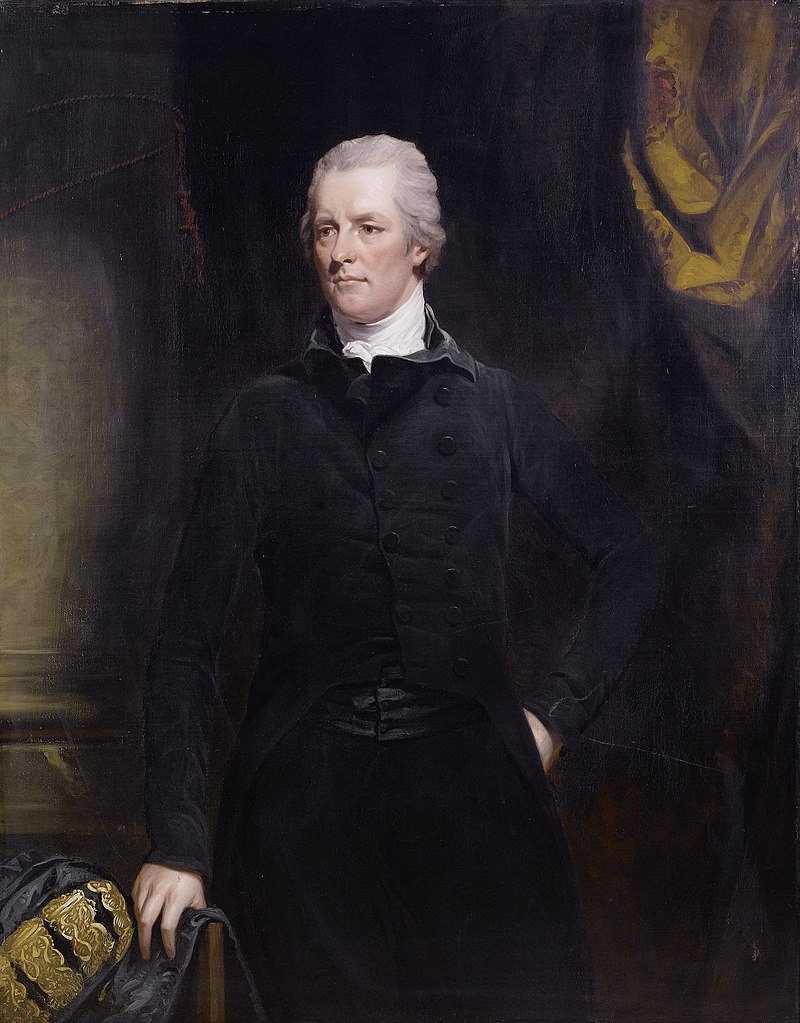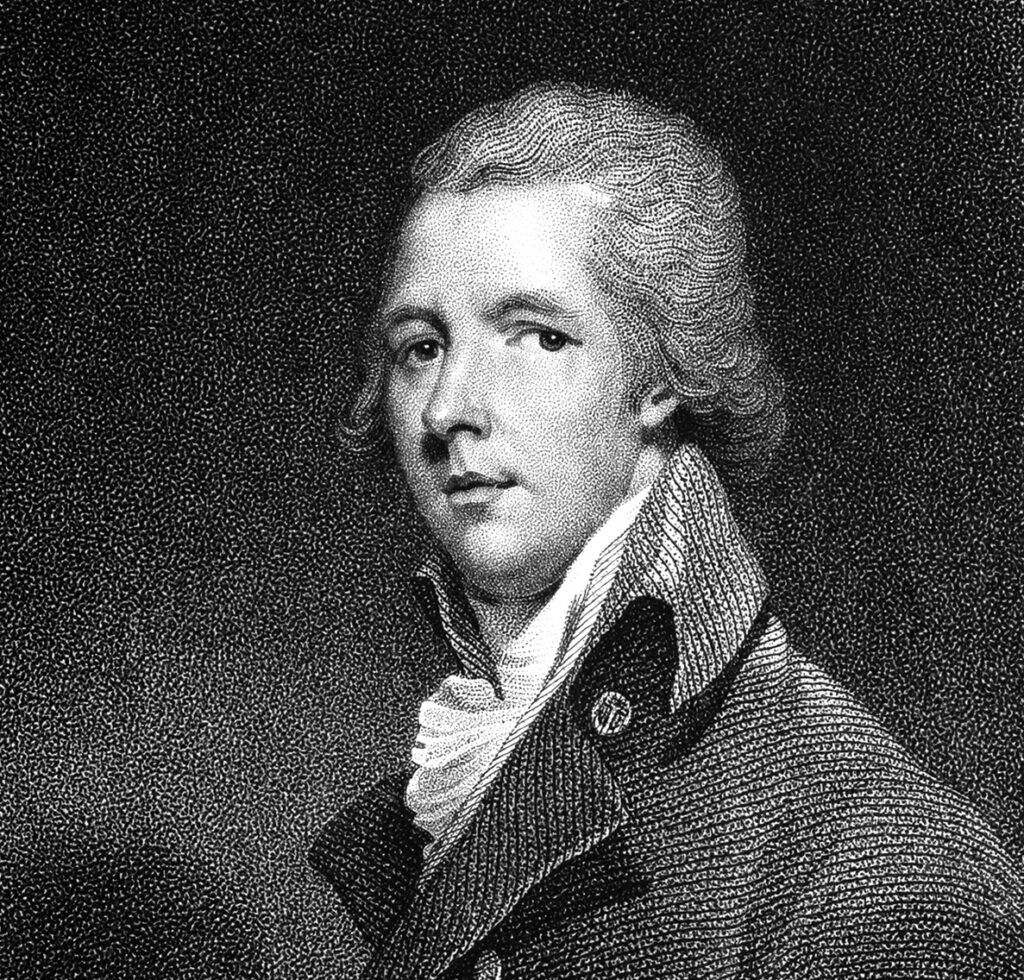William Pitt the Younger
Tory / Whig Party
Image credit: Portrait of the Right Honourable William Pitt the Younger (1759-1806). Public Domain – Source/Photographer: Bonhams
William Pitt the Younger
England has saved herself by her exertions, and will, I trust, save Europe by her example.
Tory / Whig Party
January 1801 - March 1801
1 Jan 1801 - 14 Mar 1801
|May 1804 - January 1806
|10 May 1804 - 23 Jan 1806

Image credit: Portrait of the Right Honourable William Pitt the Younger (1759-1806). Public Domain – Source/Photographer: Bonhams
Key Facts
Tenure dates
1 Jan 1801 - 14 Mar 1801
10 May 1804 - 23 Jan 1806
Length of tenures
18 years, 343 days
Party
Tory / Whig Party
Born
28 May 1759
Birth place
Hayes, Kent, England
Died
23 Jan 1806 (aged 46 years)
Resting place
Westminster Abbey, England
About William Pitt the Younger
Pitt the Younger was one of the most consequential Prime Ministers in British history. He commanded the government and directed policy to a far greater extent than any man before him. The sheer length of his tenure vastly increased the importance and powers of his office.

Early Life
Pitt the Younger was the son of Pitt the Elder and grew up in a political family. After education at Cambridge, Pitt rapidly acquired a parliamentary seat and began as an MP in January 1781. After a masterful maiden speech, Pitt was seen as a rising man. He aligned himself with the ‘independent Whig’ faction in Parliament, speaking in opposition to both the American War and Lord North’s ministry.
It was a turbulent time; several governments quickly rose and fell. New Prime Minister Lord Shelburne appointed Pitt as Chancellor in July 1783 at age 23.
Shelburne’s ministry soon fell, despite Pitt’s best efforts in the Commons. The subsequent Portland government depended on the support of the MP Charles James Fox. King George III loathed Fox.
Reforming phase, 1783-89
In late 1783, George III conspired with Pitt to defeat the Portland government in the Lords, causing it to collapse. George then invited Pitt to become Prime Minister in December. It was described as the ‘mince pie administration’ because nobody expected it to last beyond Christmas.
After losing three votes of no confidence in quick succession, in March 1784 Pitt asked for an election. He achieved a crushing majority, thrashing his ‘Foxite’ rivals.[1]
In the early years of his premiership, Pitt was dedicated to restoring national confidence, moderate reform, and repairing the economy. Tax collection became more efficient and the national debt fell considerably during the 1780s.[2] Revenue rose from £12.7 million in 1783 to £18.6 million in 1792.[3]
In Parliament, Pitt’s great rival was Charles James Fox and the two would clash across the Despatch Box for years. Fox was a radical, hated by George III. As such, Fox increasingly sought the more sympathetic company of George, Prince of Wales.
Pitt also passed the India Act in 1784, establishing a dual system of control by the British government and the East India Company. The company retained control of commerce and day-to-day administration but important political matters were reserved to a secret committee of three directors in direct touch with the British government; this system lasted until 1858.[5]
Pitt also ordered the creation of a penal colony in Australia in 1786, the beginning of European settlement there. His government divided the colony of Canada in 1791 into ‘Upper’ and ‘Lower’ parts, which became the provinces of Ontario and Quebec.[6]
In 1790, Pitt won another election, with another large majority.
Revolution and War, 1789-1801
On 14 July 1789, the Bastille fell and the French Revolution began, sending shockwaves around the world. This moment marked a change in Pitt’s premiership. Though he was excited by the early stages of the revolution, he was disgusted by the increasing violence.
Despite this, Pitt was optimistic about the future, and told Parliament in February 1792, ‘there never was a time in the history of this country when, from the situation of Europe, we might more reasonably expect fifteen years of peace, than we may at the present moment’. However, in April 1792 France went to war with Austria and Prussia. Pitt maintained Britain’s neutrality, but relations with France deteriorated regardless. On 1 February 1793, France declared war on Britain.
In 1794, Portland and several of his Whig colleagues joined Pitt’s government, buttressing his position. Pitt launched a crackdown on supporters of the French Revolution. Habeas Corpus[7] was suspended, radicals imprisoned, and gatherings made illegal. Critics called it ‘Pitt’s Terror’.[8] Some 200 people were prosecuted over the following years for sedition or radicalism, though few of the cases yielded a guilty verdict.[9]
Meanwhile, Britain’s war proved deeply frustrating. Debt rocketed and the economy staggered.
In 1798, Pitt introduced income tax as a temporary measure. Though Pitt’s tax would be abolished in 1816, after the end of the war, it was to be reinstituted during the 19th century and eventually became the main method of government income.
The strain was beginning to show. By this point, many of his cabinet ministers were in the House of Lords, requiring Pitt to spend long hours in the Commons defending his government. In 1798 Pitt accused radical MP George Tierney of a lack of patriotism, and stubbornly refused to apologise. Tierney demanded satisfaction and the two fought a duel on Putney Heath on 27 May 1798, but neither man was harmed.[10]
In 1798, the United Irishmen uprising challenged British rule in Ireland. The army quickly crushed the rising. The rising had been partly provoked by the repressive Protestant ruling class. In response, Pitt passed the Act of Union 1800, uniting the Kingdom of Ireland with Great Britain, creating the United Kingdom. This dissolved the Dublin parliament, and direct Westminster rule of Ireland began. St Patrick’s Cross was added to the Union Flag.
Pitt now advocated Catholic Emancipation (the repeal of repressive Stuart-era legislation against Catholics), which would help Ireland’s predominantly Catholic population. George III was opposed. Worn down by this clash, ill health, and the failure to defeat France, Pitt resigned in 1801. Pitt’s successor, Addington, negotiated peace.
The Second Ministry, 1804-06
War broke out again in 1804.
In Britain, popular clamour demanded the return of Pitt, and in May 1804 he became Prime Minister again. He began negotiating with Austria and Russia to create a new military coalition against France. He prepared Britain to fight and instructed the Royal Navy to disrupt Napoleon’s plans. [12]
In October 1805, Admiral Nelson’s fleet defeated the French and Spanish navies at Trafalgar. Though it cost Nelson his life, it was Britain’s greatest military victory, and ended any prospect of French invasion.[13] London rejoiced and cheered Pitt as a hero.
But despair followed. On 2 December 1805, Napoleon defeated the Russian and Austrian armies at Austerlitz. The coalition was destroyed. Pitt remarked, “Roll up that map [of Europe]; it will not be wanted these ten years.” [15]
Pitt was already unhealthy. He was exhausted by decades of high politics, stress, and alcohol.[16] In early 1806, his health rapidly deteriorated, probably due to a stomach ulcer, and he died on 23 January. [17]
There are over 20 places named after Pitt the Younger, including:
- Pittwater, Australia
- Pitt Street, Sydney
- Pitt’s Head, Snowdonia
- Pitt Street, Glasgow
- Rue Pitt, Montreal
[1] Leonard, Prime Ministers, p. 197.
[2] Dick Leonard, A History of British Prime Ministers: From Walpole to Cameron, (London, 2015) p. 199.
[3] https://www.parliament.uk/about/living-heritage/transformingsociety/private-lives/taxation/overview/incometax/
[4] William Hague, William Pitt the Younger, (London: Harper Perennial, 2004), p. 588-89.
[5] https://www.britannica.com/event/Government-of-India-Acts#ref70364
[6] https://www.britannica.com/biography/William-Pitt-the-Younger
[7] Habeas Corpus: the requirement that an arrested person be brought before a judge or court before being detained or imprisoned.
[8] Leonard, Prime Ministers, p. 205.
[9] Leonard, Prime Ministers, p. 205
[10] Hague, Pitt the Younger, pp. 424-7.
[11] Andrew Roberts, Napoleon the Great, (London, 2015) p. 328.
[12] Roberts, Napoleon, p. 332, p358.
[13] https://www.britannica.com/event/Battle-of-Trafalgar-European-history
[14] Hague, Pitt the Younger, p. 565.
[15] Roberts, Napoleon, p. 390.
[16] Hague, Pitt the Younger, pp. 220-21.
[17] Hague, Pitt the Younger, p. 579.
Collections & Content
Andrew Bonar Law
Bonar Law was the shortest serving Prime Minister of the 20th Century, being in office for just 209 days. He was gravely ill when he t...
The Earl of Rosebery
Lord Rosebery was Gladstone’s successor and the most recent Prime Minister whose entire parliamentary career...
Arthur James Balfour
Arthur Balfour was Salisbury’s successor. He had a reputation as a good parliamentarian, a capable minister, and an excellent ta...
The Duke of Wellington
Wellington is a Prime Minister who is today largely remembered for achievements unrelated to his premiership. ...
The Duke of Grafton
The Duke of Grafton believed, according to Horace Walpole, that ‘the world should be postponed to a whore and a...
Benjamin Disraeli
Charming, brilliant, witty, visionary, colourful, and unconventional, Benjamin Disraeli (nicknamed ‘Dizzy’) was one of the greate...
Boris Johnson
Boris Johnson is one of the most charismatic and controversial politicians of the modern era. To supporters, he was an authentic voice wh...
The Earl Grey
Earl Grey was the great aristocratic reformer. His government passed the ‘Great Reform Act of 1832’, ending an entire e...


